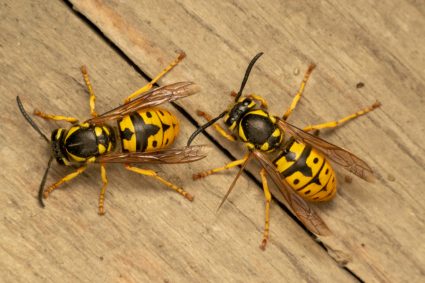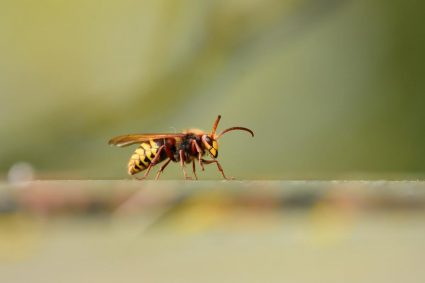
The unpleasant smell of skunk spray on car tires is a challenge that many drivers face. It’s not just a bad smell, it’s an incredibly persistent one that can linger for weeks if not properly dealt with. This comprehensive guide will walk you through the best methods to get rid of skunk smell on car tires, including DIY home remedies, commercial products, and preventive measures.
To get rid of skunk smell on car tires, act quickly and prepare a cleaning solution of one quart of hydrogen peroxide, 1/4 cup baking soda, and one teaspoon of liquid dish soap. Wash the car’s exterior with this solution, focusing on the affected areas. Rinse and repeat until the odor is gone. If the smell persists, try using home remedies like tomato juice or lemon essential oil, or commercial products like Zero Odor Pro or white vinegar.
What Causes Skunk Smell on Car Tires?
The primary cause of skunk smell on car tires is coming into contact with a skunk or its spray. Skunks are known for their foul odor, which they release as a defense mechanism. If you accidentally run over a skunk or drive through an area where a skunk has sprayed, the smell can transfer to your car tires. The odor is caused by chemicals called thiols present in skunk spray.
Immediate Actions to Take
If your car has been sprayed by a skunk, you should take immediate action to remove the odor and prevent any potential damage. Here are some steps to follow:
- Act quickly: The faster you address the issue, the easier it will be to remove the smell.
- Prepare a cleaning solution: Mix one quart of hydrogen peroxide, 1/4 cup baking soda, and one teaspoon of liquid dish soap in a bowl.
- Wash the car’s exterior: Thoroughly wash the car’s exterior with the cleaning solution, focusing on the affected areas.
- Rinse and repeat: After applying the cleaning solution, rinse the car with water. Repeat the process as needed until the odor is gone.
- Clean the interior: If the skunk smell has penetrated the car’s interior, you may need to remove and clean the affected upholstery or carpeting.
- Air out the car: Open all the windows and doors to allow fresh air to circulate and help remove any lingering odors.
Home Remedies to Remove Skunk Smell
There are several home remedies that can be used to remove skunk smell from car tires effectively.
Hydrogen Peroxide, Baking Soda, and Liquid Soap Solution
- Mix the hydrogen peroxide, baking soda, and liquid dish soap in a container.
- Soak a clean cloth in the solution and gently scrub the affected areas of the tires.
- Rinse the tires thoroughly with water to remove any residue from the solution.
Tomato Juice
- Pour tomato juice onto a clean cloth or sponge.
- Gently scrub the affected areas of the tires with the tomato juice-soaked cloth or sponge.
- Rinse the tires thoroughly with water to remove any residue from the tomato juice.
Lemon Essential Oil
- Mix a few drops of lemon essential oil with water in a spray bottle.
- Spray the solution onto the affected areas of the tires.
- Wipe the tires with a clean cloth and rinse with water.
Commercial Products for Skunk Smell Removal
There are several commercial products available that can help remove skunk smell from car tires effectively. Some recommended products include:
- Zero Odor Pro: This commercial strength odor eliminator, neutralizer, and deodorizer can be used to remove skunk smell from car tires.
- White Vinegar: Mix equal parts of water and white vinegar in a spray bottle and spray the solution on the affected tires. This versatile cleaner can help remove skunk smell from car tires.
- Car-specific soap with vinegar: Mix a car-specific soap with vinegar and water, and spray every part of the tire. Work in the mixture with a tire scrub or a microfiber towel, and then wash away the mixture with water.
Preventing Skunk Encounters
To prevent skunk encounters and avoid having your car tires sprayed, you can take the following measures:
- Remove food sources: Secure your trash cans, pet food, and bird feeders.
- Install lights: Skunks are nocturnal and tend to avoid well-lit areas.
- Use skunk repellents: Use commercial skunk repellents or homemade repellents like ammonia-soaked rags.
- Seal off hiding spots: Seal off areas under decks, porches, or in woodpiles where skunks could hide.
- Maintain your yard: Keep your yard clean and well-maintained to reduce hiding spots for skunks.
In conclusion, skunk smell on car tires can be a persistent issue, but with the right knowledge and tools, it can be effectively managed. Whether you prefer home remedies or commercial products, the key is to act quickly and be thorough in your cleaning process. And remember, prevention is always better than cure, so take measures to deter skunks from your property.
Frequently Asked Questions
Can I use vinegar instead of hydrogen peroxide in the cleaning solution?
Yes, vinegar can be a good substitute for hydrogen peroxide in the cleaning solution. It is a known deodorizer and can help neutralize the skunk smell. Just replace the hydrogen peroxide with an equal amount of vinegar.
How long does skunk smell last on car tires?
The duration of skunk smell on car tires can vary based on several factors, including the amount of skunk spray, the type of tires, and the effectiveness of the cleaning process. However, with proper cleaning, the smell should significantly decrease or disappear within a few days to a week.
Can I use any dish soap in the cleaning solution?
Yes, you can use any type of dish soap in the cleaning solution. However, it’s recommended to use a mild, unscented dish soap to avoid adding any unnecessary fragrances to the mix.
Is there any danger if I don’t remove the skunk smell from my car tires?
While the skunk smell itself is not harmful, prolonged exposure to skunk spray can potentially damage your car tires and paint if not properly cleaned. Thus, it is recommended to clean the affected area as soon as possible.
Can I use commercial products and home remedies simultaneously?
Yes, you can use both commercial products and home remedies in your cleaning process. However, it’s important to rinse your tires thoroughly between each method to prevent any potential reactions between different cleaning agents.












